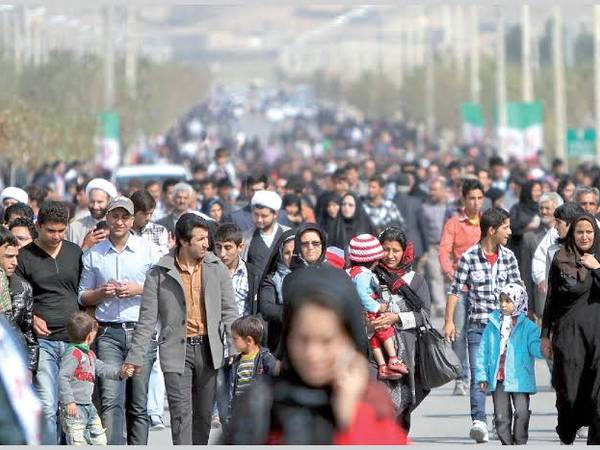A moderate conservative politician in Iran asserts that the concepts of reformism and conservatism have lost their meaning for the people, struggling for a living.
Former lawmaker Heshmatollah Falahatpisheh told the press that both of the main political factions in Iran have fallen victim to their leaders' opportunism. He charged that leaders of both factions have exploited their members with populist policies that only served their personal interests.
Falahatpisheh did not name anyone in the two leading factions, but Iranian protesters have been voicing their disillusionment and disappointment about conservatives and Reformists in major protests in Iran since 2018 by chanting "It's all over for both reformists and conservatives."
He said that populism and prioritizing personal gains by key politicians have become the perils of political participation at election times. He added that major politicians of both camps can no longer exercise any influence on the voters.
Falahatpisheh further argued that the opportunists have always had short-term interests in politics and never tried to leave a lasting impact on the people's lives. "Their greed for power and wealth has done a lot of damage to the country," he said. To support his point, Falahatpisheh pointed out that the members of both of leading political factions have been involved in major financial corruption cases.
Nonetheless, and although Iranian media commentators and politicians generally believe that there is no room for participation and competition in the upcoming parliamentary election for Iran's reformists, all of whose candidates have reportedly been barred from running for the parliament, still, part of the reform camp, in particular three moderate parties, are keen to take part in the March 1 elections.
This comes while major reformists parties and their leading politicians have said that they are not going to take part in the elections. Reformist leader and former president Mohammad Khatami has said that there is no point in political participation when the regime is not prepared to introduce any change in the political system. Jailed reformist figure Mostafa Tajzadeh has openly talked about boycotting the elections.
According to Nameh News, however, three moderate reformist parties, the Executives of Construction Party led by Hossein Marashi, Neda-ye Iranian Party led by Shahaboddin Tabatabai, and the Moderation and Development Party led by former Vice President Mohammad Bagher Nobakht are determined to nominate their candidates for the upcoming elections.
No well-known reformist or moderate candidates have been allowed to run in the first phase of the vetting by the Interior Ministry, and insiders of the reform camp say there is no one left to run. However, some Reformists say they will look for moderate faces among those whose qualifications will be endorsed by the Guardian Council in January. The Moderation and Development Party which is close to former President Hassan Rouhani says it will name 16 candidates for the list of 30 candidates for the seats that represent Tehran. They probably hope that the other two parties will fill the other 14 slots in the list as well as several others in the provinces.
Although conservative politicians usually dismiss plans and even wishful thinking of the Reformists and moderates to take part in the election, conservative activist Mohammad Ali Pourmokhtar has told Nameh News that conservatives should be weary of a surprise comeback by the reformists.
Pourmokhtar added that Reformists might be able to benefit from the situation if conservatives cannot achieve a consensus among themselves and announce several lists of candidates rather than one.
Such a surprise is not unprecedented. In 1997 when Iranian conservatives and their leaders were almost certain that they were going to win the presidency, a hitherto unknown reformist figure Mohammad Khatami's landslide victory took the entire conservative camp by surprise. In the parliamentary elections, a substantial win means to have around half of the 290 seats at the Majles.
"This is not conceivable at least at this point," a seasoned Iran analyst told Iran International.
